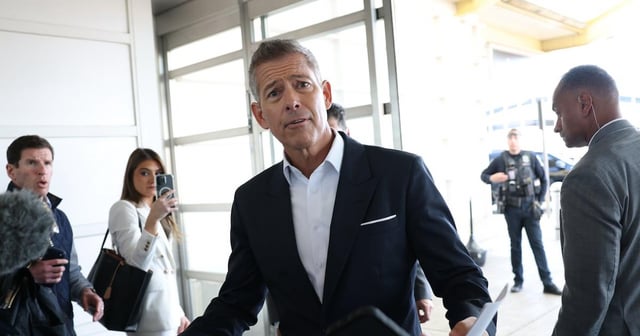The Silent Exodus: Air Traffic Controllers Walk Away Amid Shutdown
Imagine boarding a plane, settling into your seat, and trusting that highly skilled professionals are guiding your flight safely through the skies. Now imagine those professionals are working without pay, facing mounting bills, and questioning their ability to continue ensuring your safety. This wasn’t a hypothetical scenario a few years ago; it was a stark reality during the longest government shutdown in U.S. history. The strain of working without pay took a toll, and a critical segment of the aviation workforce, air traffic controllers, began to resign, raising serious concerns about the safety and efficiency of air travel.
While the immediate crisis might be over, the underlying issues remain a potent reminder of the fragility of critical infrastructure when faced with political gridlock. The exodus of experienced controllers highlighted not just financial strain but also the immense pressure and responsibility these professionals shoulder daily. Understanding the impact of this event provides valuable insights into the human cost of political decisions and the importance of a stable and supported air traffic control system.
The Pressure Cooker: Why Air Traffic Controllers Are Essential
Air traffic controllers are the unsung heroes of the aviation industry. They work tirelessly, often in high-pressure environments, to manage the flow of air traffic and prevent accidents. Their role is crucial to ensuring the safe and efficient operation of airports and airways. They’re responsible for coordinating aircraft movements, providing pilots with critical information, and making split-second decisions that can save lives.
The job demands intense concentration, quick thinking, and the ability to remain calm under pressure. Controllers are responsible for the safety of hundreds, sometimes thousands, of passengers at any given time. It’s a profession that requires years of training and experience, making the loss of experienced controllers particularly damaging to the system.
Adding to the pressure, air traffic control is a field constantly grappling with staffing shortages. Even without the added stress of a government shutdown, the job can be incredibly demanding, leading to burnout and high turnover rates. The shutdown only exacerbated an already precarious situation, pushing some controllers past their breaking point.
The Shutdown’s Sting: Unpaid Labor and Mounting Stress
The government shutdown thrust air traffic controllers into a deeply unfair position. They were deemed essential employees, required to report to work, but denied their paychecks. This created an untenable situation for many, forcing them to choose between their commitment to public safety and their own financial well-being.
Imagine trying to focus on the complex task of guiding aircraft while worrying about paying your mortgage, feeding your family, or affording gas to get to work. The stress and anxiety associated with financial insecurity inevitably impacted job performance and morale. This created a potentially dangerous situation, as even momentary lapses in concentration can have catastrophic consequences in air traffic control.
The situation also created a sense of resentment and disillusionment among controllers. Many felt undervalued and forgotten by the government, despite their vital role in ensuring public safety. The resignations were a direct consequence of this perceived lack of support and the unsustainable pressure of working without pay.
The Ripple Effect: Potential Consequences and Long-Term Implications
The resignation of experienced air traffic controllers has far-reaching consequences for the aviation industry and the traveling public. The immediate impact is felt in increased workloads for remaining controllers, potentially leading to fatigue and an increased risk of errors. This can lead to flight delays, cancellations, and a general decrease in the efficiency of air travel.
The long-term implications are even more concerning. The loss of experienced controllers creates a training gap, as it takes years to develop the skills and expertise necessary to effectively manage air traffic. Filling these positions with new recruits requires significant investment in training and resources, and it takes time for new controllers to gain the experience necessary to handle complex situations.
The shutdown also had a chilling effect on recruitment. Potential candidates may be deterred from pursuing a career in air traffic control if they perceive the job as unstable or subject to political whims. This could lead to a chronic shortage of controllers in the future, further compromising the safety and efficiency of air travel. Addressing these issues requires a commitment to investing in the air traffic control workforce, ensuring fair compensation, and creating a more stable and supportive work environment.
Moving Forward: Ensuring a Safe and Reliable Aviation System
The crisis faced by air traffic controllers during the government shutdown served as a wake-up call. It highlighted the vulnerability of critical infrastructure to political instability and the human cost of neglecting essential public services. Preventing similar situations in the future requires a multifaceted approach.
First and foremost, it is crucial to ensure that essential government services are protected from political gridlock. Funding mechanisms should be in place to guarantee that vital agencies, such as the FAA, can continue to operate even during periods of political uncertainty. This will provide stability and security for the workforce and ensure the continued safety and reliability of the aviation system.
Secondly, it is essential to invest in the air traffic control workforce. This includes fair compensation, adequate staffing levels, and comprehensive training programs. By providing controllers with the resources and support they need, we can attract and retain talented individuals and ensure that they are able to perform their jobs safely and effectively. The safety of our skies depends on it.
